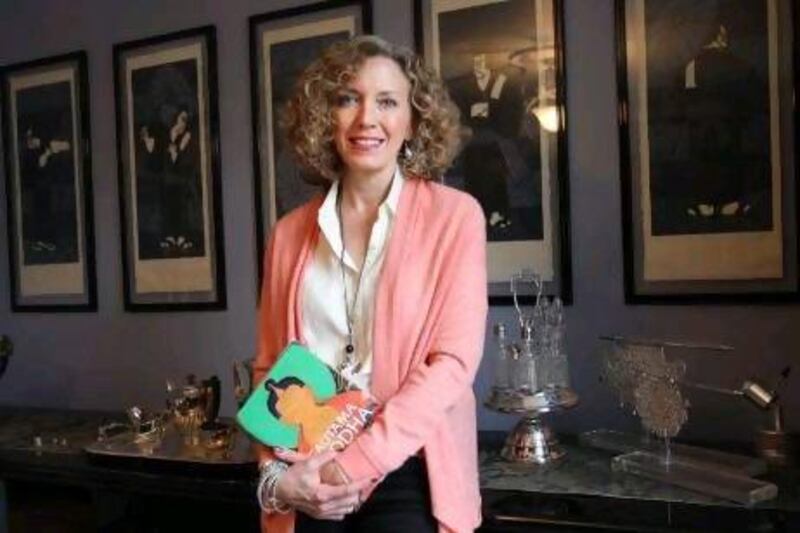When the shortlist for the 2011 Man Asian Literary Prize was announced in London, one of the first responses from the crowd of publishers, literary agents, critics and journalists gathered was: "Why are there so many Indians on the list?"
The question was asked in December by a journalist from Hong Kong and while her bluntness raised some laughs, she did have a point.
Of the seven writers on the shortlist, four are from the subcontinent (three from India, one from Pakistan) while three are from the Far East, which has traditionally dominated what is considered to be one of the most prestigious literary awards in Asia.
Since the Man Asian Literary Prize was established in 2007, Chinese writers have won three times out of four (the exception being Filipino author Miguel Syjuco, whose novel Illustrado, about a young man investigating the mysterious death of a writer, scooped the prize in 2008). So, why are there so many south Asian authors on the Man Asian Literary prize shortlist this year?
Adrienne Loftus Parkins directs the annual Festival of Asian Literature in London and curates literary events for The Asian Word. She says she's noticed an increased appetite for south Asian literature from readers in the past two years: "It's because south Asian fiction is so compelling. There is a lot happening over there, culturally, economically and politically. In the West, we're only aware of this through the media, so we don't get to see the real effect it has on society. Contemporary literature from the region gives us an opportunity to see behind the news and into the lives of the people experiencing these momentous social changes."
Eighty-year-old Jamil Ahmad made his debut as a published novelist last year and is the first Pakistani writer to be shortlisted for the Man Asian prize. His book about nomadic tribes in Pakistan, The Wandering Falcon, lay untouched for 40 years, but since being published last summer, it has won huge critical acclaim and is now one of the strongest contenders to win the US$19,000 (Dh70,000) prize.
"The Chinese have done really well in the past four years and there have been some very good books coming out of China, which I have enjoyed reading," he says, speaking from his home in Islamabad. "But maybe the western world is getting more interested in us in Pakistan and the East. Maybe they feel that they have not done enough to understand us, and so the mood is changing now."
Stories that help understand and portray another way of life were what the chair of the judges, the journalist Razia Iqbal, said she was looking for when compiling the shortlist together with her fellow judges, novelist Vikas Swarup and Pulitzer Prize finalist Chang-rae Lee.
"There is no particular reason why there are four south Asian writers on the shortlist, other than their books are all very, very well written," says Iqbal. "As judges, we are looking for books that work as novels - that make you feel compelled to keep turning the pages and feel ever so slightly transformed by the end of it. Ultimately, every one of these books on the shortlist deals with what it is to live in the world today, even if they are set in the past."
Of course, south Asian literature isn't a recent phenomenon - novels by the likes of Vikram Seth, Arundhati Roy and Anita Desai grace many a bookshelf. Some south Asian writers don't see their writing defined by nationality; the Indian cricket journalist Rahul Bhattacharya, whose book about travelling in Guyana, The Sly Company of People Who Care, is also on the shortlist, says: "I'm not sure if writers think of their texts as south Asian, and perhaps it doesn't matter. I know it says Asian on the banner of this prize, but it is also celebrating the individuality of all the titles on the shortlist, which is wonderful."
Nonetheless, there remains a demand for south Asian literature by publishers and readers, as seen by the increased number of platforms that showcase writers from the region to a small but international literary audience. The Jaipur Literary Festival takes place every January; Galle, Goa, Kolkata and Karachi have their own festivals, too. The DSC South Asian Literature Festival has been running since 2010 in the UK, and awards a $50,000 prize each year. Jon Slack, director of the festival, stresses south Asian literature isn't a trend, but is very much here to stay.
"I see this less as a turning point and more reflective of the high-quality literature gradually coming out of Pakistan and India. Certainly, the stories that shine through are the ones that show a side to the countries that we don't see in the news," he says. "As a non-south Asian myself, when I read a book by a south-Asian writer, they are often writing about a part of the world that I know very little about. These cultures have such a tremendously rich storytelling heritage, and there is so much to explore - not just literature from India and Pakistan, but Bangladesh, too. It is so fascinating to read about the point at which two cultures meet."
The winner of the 2011 Man Asian Literary Prize will be announced in Hong Kong on Thursday, and until then, the three judges will be busy rereading all of their choices.
"What comes through time and time again in these books is the power of storytelling," says Iqbal. "For so many cultures, the novel holds an irrepressible sway. People read all the time, and if this shortlist makes people go away and read new books, then that in itself is astounding."
Follow
Arts & Life on Twitter
to keep up with all the latest news and events
[ @LifeNationalUAE ]





